
Labour Party logo
The Labour Party (LP), once buoyed by a wave of optimism and grassroots support during the 2023 general elections, is now grappling with a growing crisis that has seen it lose no fewer than 21 lawmakers in just 12 months.
Once hailed as a rising third force in Nigerian politics, the LP’s post-election momentum has been severely dented by internal wrangling, leadership tussles, lack of ideological cohesion, and a growing exodus of elected officials.
From the Senate to the House of Representatives and down to state assemblies, a steady stream of defections has rocked the party, raising questions about its stability and long-term prospects ahead of the 2027 polls.
The defections began as early as 2024, with Senator Ezenwa Francis Onyewuchi (Imo East) leading the charge to the All Progressives Congress (APC). His departure in July of that year triggered a domino effect. Soon after, five LP members in the House of Representatives followed suit: Chinedu Okere (Imo), Mathew Donatus (Kaduna), Bassey Akiba (Cross River), Esosa Iyawe (Edo), and Alfred Iliya Ajang (Plateau) — all defected to the ruling APC.
Later in the same year, Rep. Dalyop Chollom (Plateau) also resigned from the party, further signalling that the LP’s house was not in order.
The Enugu State House of Assembly, which had emerged as a regional LP stronghold in 2023, was not spared. In a dramatic development, six lawmakers — Ejike Eze, Johnson Ugwu, Pius Ezeuwa, Amuka William, Osita Eze, and Princess Ugwu — defected to the Peoples Democratic Party (PDP), citing loss of faith in the party’s direction.
By early 2025, the tide had swelled. Three LP members in the House of Representatives from Enugu State — Dennis Agbo, Chidi Obetta, and Sunday Umeha — left the party for the PDP and APC. Another state lawmaker in Enugu, Malachi-Okey Onyechi, joined the PDP. The Federal Capital Territory’s lone LP senator, Ireti Kingibe, also dumped the party, followed by Senator Neda Imasuen (Edo South).
To cap the wave, two more federal lawmakers, Chimaobi Atu and Paul Nnanchi from Enugu, resigned from the party in mid-2025.
While most defectors have blamed internal crisis, “lack of party structure,” or “alignment with the centre” for their exits, insiders and analysts point to a deeper malaise: a party that rapidly rose to prominence on the back of Peter Obi’s Obidient movement in 2023 but failed to consolidate that momentum through coherent organisation, strong leadership, and internal democracy.
The LP’s internal disputes, particularly over the legitimacy of its National Chairman, Julius Abure, have splintered its national executive, with Senator Nenadi Usman emerging as a factional interim national chairman, which has created confusion among party faithful. Court cases, counterclaims, and accusations of mismanagement have festered, leaving room for rivals to exploit disillusionment among lawmakers and grassroots members alike.
The result: a slow but steady attrition of the party’s political assets, especially in the Southeast, which had been its strongest support base in 2023.
Amid the crisis, the Labour Party has threatened to fight back using legal and moral means. In December 2024, the party said it had begun documenting the names of defectors, especially those elected on its platform, and threatened to pursue legal means to reclaim their seats.
National Publicity Secretary, Obiorah Ifoh, said in a statement when the defection recently started that the party had instructed its legal team to initiate proceedings, citing Section 68(g) of the 1999 Constitution, which states that lawmakers who defect from their party without evidence of division risk forfeiting their seats.
“The party has decided to open a ‘Hall of Shame’ register for these lawmakers or any elected official of the party who engages in fraudulent defection without first relinquishing the mandate obtained under the party’s ticket,” Ifoh said.
He described such moves as a betrayal of voters’ trust and warned that their names would be permanently associated with political opportunism.
Despite widespread concern about its internal unity, the Labour Party insists that the defections are not due to the party’s failure but rather a reflection of the opportunistic nature of Nigerian politics.
Speaking in an interview with Daily Trust, Ifoh said the exodus of lawmakers was driven by self-preservation instincts ahead of the 2027 elections.
“It has nothing to do with the party itself,” he said. “It has much to do with the survival strategy of most politicians. Most of them believe that the party at the centre will give them more opportunity for reelection.”
Ifoh revealed that the party had initiated several lawsuits, especially in Enugu, to challenge the defections, but added that slow judicial processes had hampered enforcement.
“You know the status of the judiciary in Nigeria. As to when judgement will come, we do not know. That is beyond our powers,” he said.
He conceded that the party cannot legally stop an elected member from resigning, adding that Nigeria’s weak party ideology means most politicians prioritise their political futures over party loyalty.
“In Nigeria, where there are politicians without a clear ideology, their only ideology is survival,” Ifoh lamented.
Is identity crisis worsened by personality cult?
The Labour Party’s rapid ascent in 2023 was widely credited to the personality of its presidential candidate, Peter Obi. His projected clean image, youth appeal, and effective social media campaign galvanised millions of first-time voters and reshaped Nigeria’s electoral map.
But political analyst, Professor Kamilu Sani Fage, warns that the party’s success may have been too dependent on Obi’s personal appeal rather than a robust, institutionalised structure.
“Labour Party is one of Nigeria’s oldest parties, but it was Peter Obi’s entry in 2022 that made it relevant at the national stage,” Fage said.
He added that the current defections reflect a failure to institutionalise the momentum Obi brought and raise doubts about the party’s sustainability if Obi chooses not to run again or fails to maintain his popularity.
“Without a strong structure or unifying ideology, the party is vulnerable to external influence and internal sabotage,” he said.
Beyond the Labour Party’s woes, analysts warn that the defections, which have also significantly hit the country’s main opposition, the People’s Democratic Party (PDP), point to a larger issue in Nigeria’s political culture: the absence of ideological commitment and the ease with which elected officials switch parties without consequences.
Professor Fage argued that the steady movement of politicians from the opposition to the ruling APC may not be entirely voluntary.
“This wave of defection from opposition parties to the ruling party is not a natural political movement,” he said. “Some are being enticed, others are being threatened. But it will not significantly change the course of Nigerian politics.”
He warned that such developments could erode the credibility of the opposition, limit electoral competition, and deepen voter apathy.
“It could create political crises between the ruling party and the opposition, just as it happened in the First and Second Republics,” Fage said.
“It may also create problems within the ruling party when it comes to fielding candidates and managing interests,” he added.
Analysts believe that with less than two years to the 2027 general elections and the growing momentum of the African Democratic Congress (ADC), which was recently adopted as the platform for the opposition coalition, the Labour Party faces a critical test. Its continued relevance now depends on its ability to rebuild internal structures, halt the exodus, particularly the anticipated defection of Peter Obi and its sole governor, Alex Otti of Abia State, and, perhaps, regain voters’ confidence to remain a force in national politics. (Daily Trust, but headline rejigged)
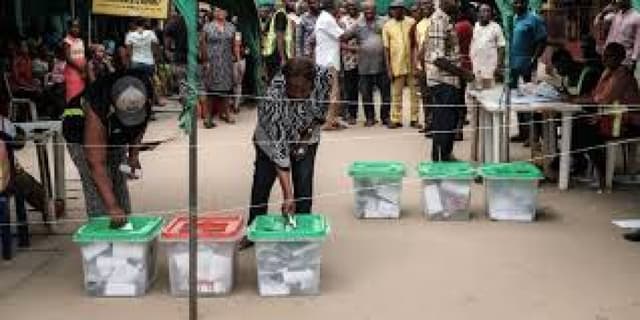
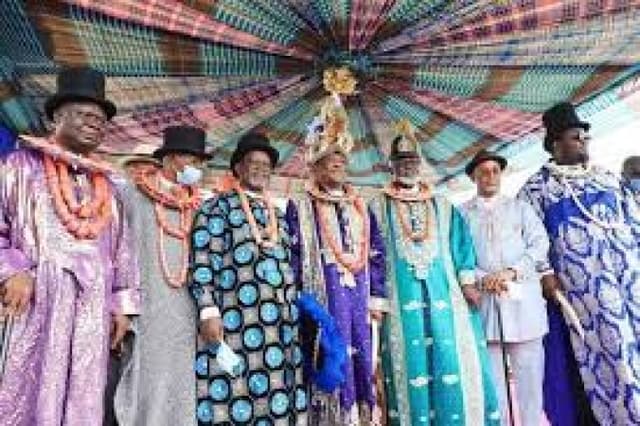
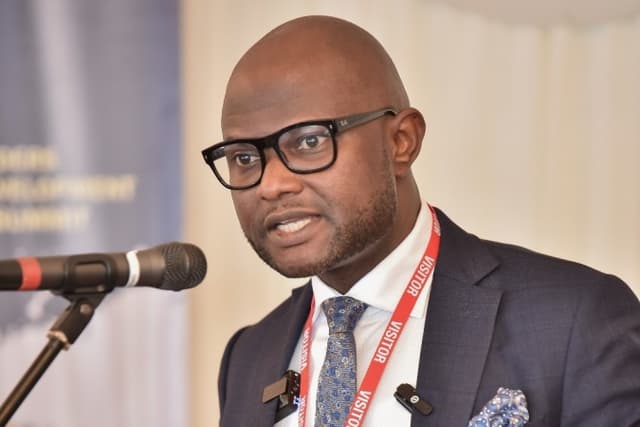
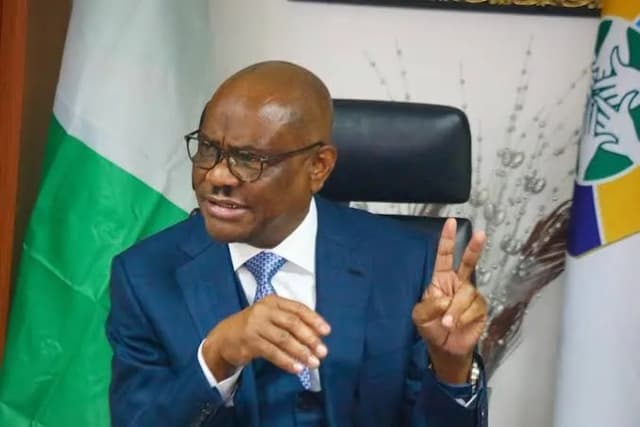
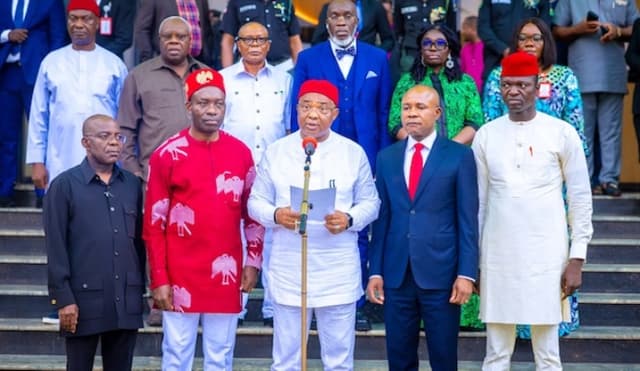







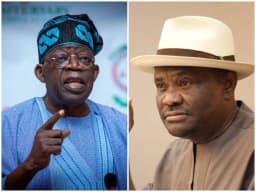








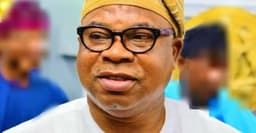
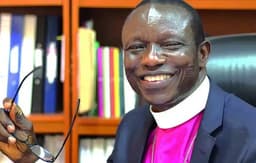


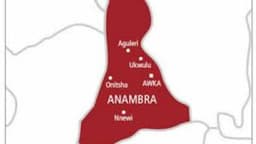

NEWS EXPRESS is Nigeria’s leading online newspaper. Published by Africa’s international award-winning journalist, Mr. Isaac Umunna, NEWS EXPRESS is Nigeria’s first truly professional online daily newspaper. It is published from Lagos, Nigeria’s economic and media hub, and has a provision for occasional special print editions. Thanks to our vast network of sources and dedicated team of professional journalists and contributors spread across Nigeria and overseas, NEWS EXPRESS has become synonymous with newsbreaks and exclusive stories from around the world.